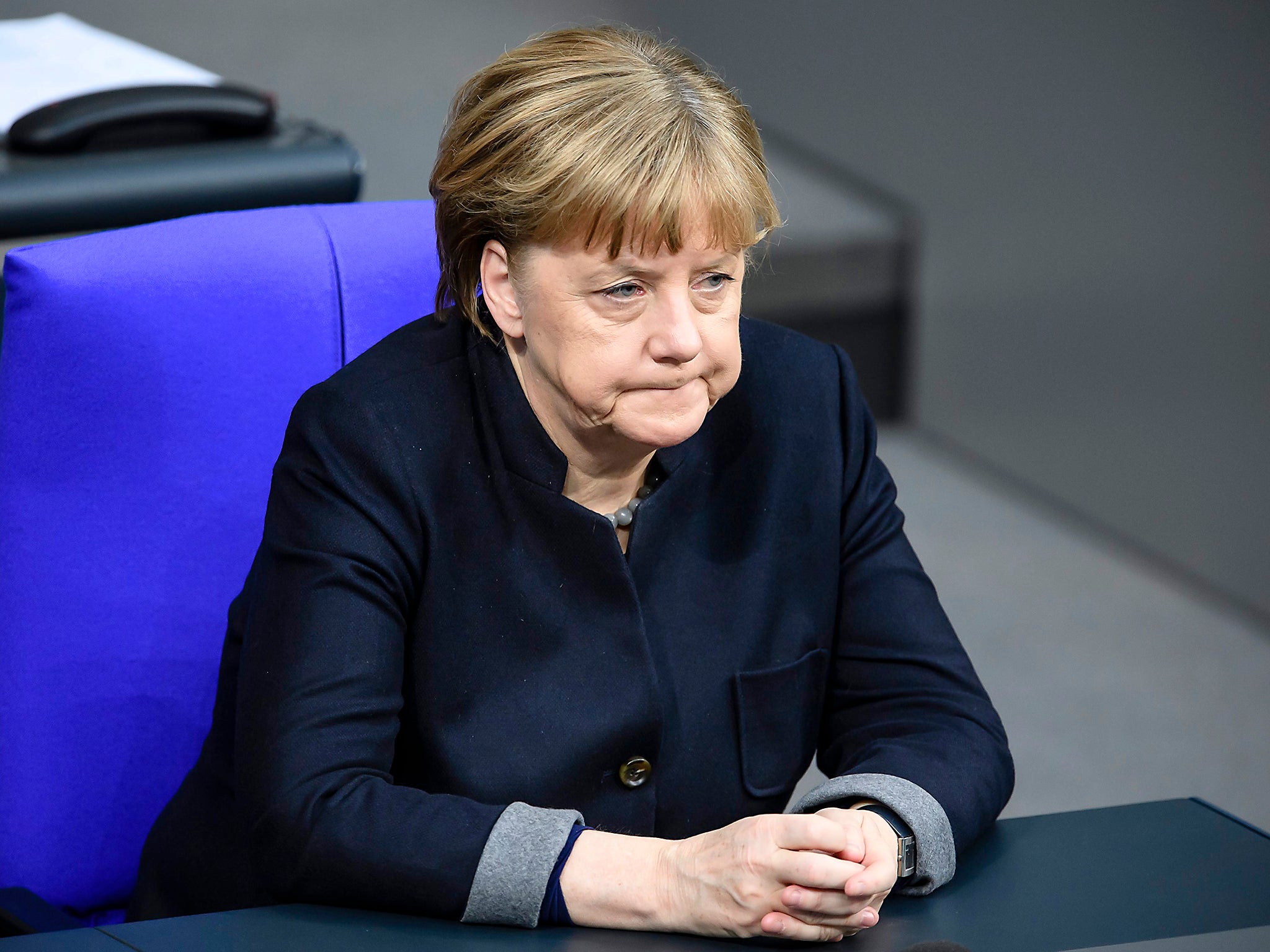Angela Merkel could be ousted by anti-Brexit hardliner part-way through negotiations
Martin Schulz is fervently pro-EU and has pledged that Brussels will 'defend the interests of its citizens'

Your support helps us to tell the story
From reproductive rights to climate change to Big Tech, The Independent is on the ground when the story is developing. Whether it's investigating the financials of Elon Musk's pro-Trump PAC or producing our latest documentary, 'The A Word', which shines a light on the American women fighting for reproductive rights, we know how important it is to parse out the facts from the messaging.
At such a critical moment in US history, we need reporters on the ground. Your donation allows us to keep sending journalists to speak to both sides of the story.
The Independent is trusted by Americans across the entire political spectrum. And unlike many other quality news outlets, we choose not to lock Americans out of our reporting and analysis with paywalls. We believe quality journalism should be available to everyone, paid for by those who can afford it.
Your support makes all the difference.The chance that Angela Merkel could be ousted as German chancellor half-way through Brexit negotiations has increased after a heavyweight social democrat moved to take charge of the country’s main opposition party.
Polls suggest Martin Schulz, who served as president of the European Parliament until last week, would dramatically close the gap between the centre-left SPD and Ms Merkel’s centre-right CDU if he takes the helm ahead of elections to the Bundestag.
Mr Schulz has publicly presented a more hard-line approach again Britain and Brexit than Ms Merkel, having accused top Tories of having left “rubble behind them in a bid to fuel their personal ambitions”. He has also said that Brussels would need to “defend the interests of its citizens, just as the UK will do”.
Room was made for Mr Schulz at the top of the SPD after current leader Sigmar Gabriel said he would not continue in post ahead of the federal elections scheduled for September.
A poll by ARD published at the end of last year found that Mr Schulz would likely give his party’s fortunes a bounce. In a forced choice between Ms Merkel and Mr Gabriel Ms Merkel polled 57 per cent to 19 per cent. With Mr Schulz in charge the gap closes to 43 per cent for Ms Merkel and 36 per cent for Mr Schulz.
The SPD does not necessarily need to poll more than the CDU to oust Ms Merkel as it has a wider potential choice of allies to form a coalition government in the Bundestag. Ms Merkel’s main potential partner is the struggling liberal FDP, while the SPD could team up with the Greens and left-wing Die Linke.
Matters are further complicated by the rise of the right-wing Alternative for Germany, which has mostly eaten into CDU support in recent years, though the SPD has also seen its poll share fall.
Ms Merkel has dominated German politics since the noughties, with her party barely falling below first place in the polls while she has led it. She confirmed in recent months that she would indeed lead her party into the next federal elections and her presence leading Germany during the Brexit process was until now considered a given by most observers.
The Chancellor has survived in part by adopting the policies of her opponents whenever they appear to be on the verge of finding a chink in her armour – posing the possibility that she might adopt Mr Schulz’s more hardline anti-Brexit approach.
The German federal elections come five months after France picks its new President. The final round of that contest is likely to be between a centre-right candidate and far-right candidate Marine Le Pen.
Join our commenting forum
Join thought-provoking conversations, follow other Independent readers and see their replies
Comments